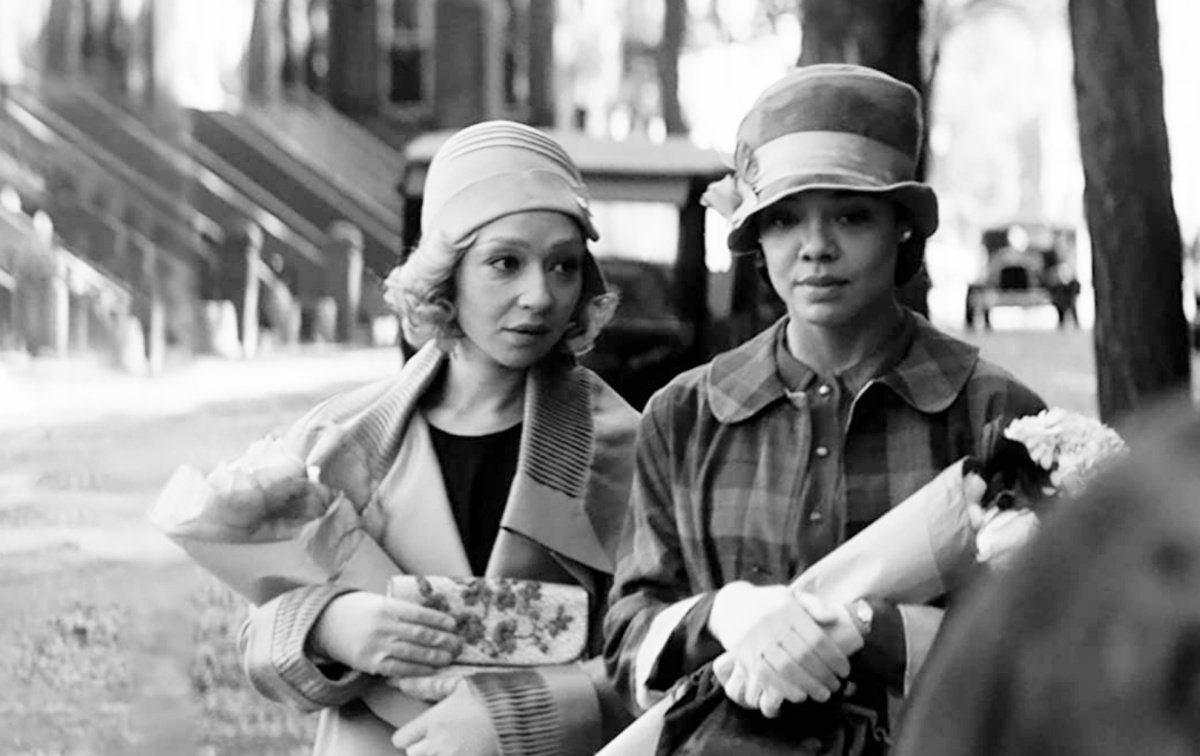Passing
Gorgeously shot and performed, but somewhat plodding, tale of skin colour prejudice in the early 20th century.
Irene (Tessa Thompson), a mixed race woman from Harlem in the 1920’s, is shocked when she runs into her old high school friend Clare (Ruth Negga) in a gorgeous upmarket restaurant in New York. Clare, much to her confusion, disgust and horror, is passing as a white woman, married to a racist white man (Alexander Skarsgard). But this chance encounter sparks something in Clare, and she finds herself desperate to rediscover her roots. She gets closer to Irene, and Irene’s husband Brian (Andre Holland), but her bright spark also seems to throw Irene in the shadows. As Irene’s paranoia mounts, and the presence of Clare affects her relationship and life, neither can help feeling like there is a constant threat hanging in the air; that Clare’s double life could be discovered.
Directed by Rebecca Hall, Passing is a smart and gorgeous movie that really hones in on the elements that make filmmaking impressive; performance and visuals. Thompson and Negga are both astoundingly good in this movie, truly bringing layers of depth and complexity to their roles that make this an easy to engage with piece.
Visually, the cinematography is beautifully done. Presented entirely in black and white, and in a 4:3 aspect ratio, the budgetary constraints are used to tremendous narrative effect to help convey tone, story and a distinctive mood matching the time period. The camera is also often locked off, which at times can make this feel like a black and white, deeply matured Wes Anderson film, but at other times helps to convey the intention with which this whole film seems to have been meticulously put together.
The issue with the film is primarily the sluggishness of the plot. Passing meanders through its twists and turns, all of which are fairly self-evident and expected from the premise and set-up, and in doing so - particularly when this is such a performance heavy, still drama - the film can seem interminably slow. One wonders how that lack of urgency will translate to streaming, with the movie set to hit Netflix after a limited release in theatres. Undoubtedly, this is one that should be seen in the quiet solitude of a cinema, where you can focus and where the space and effectively hold your interest when the movie fails to.


